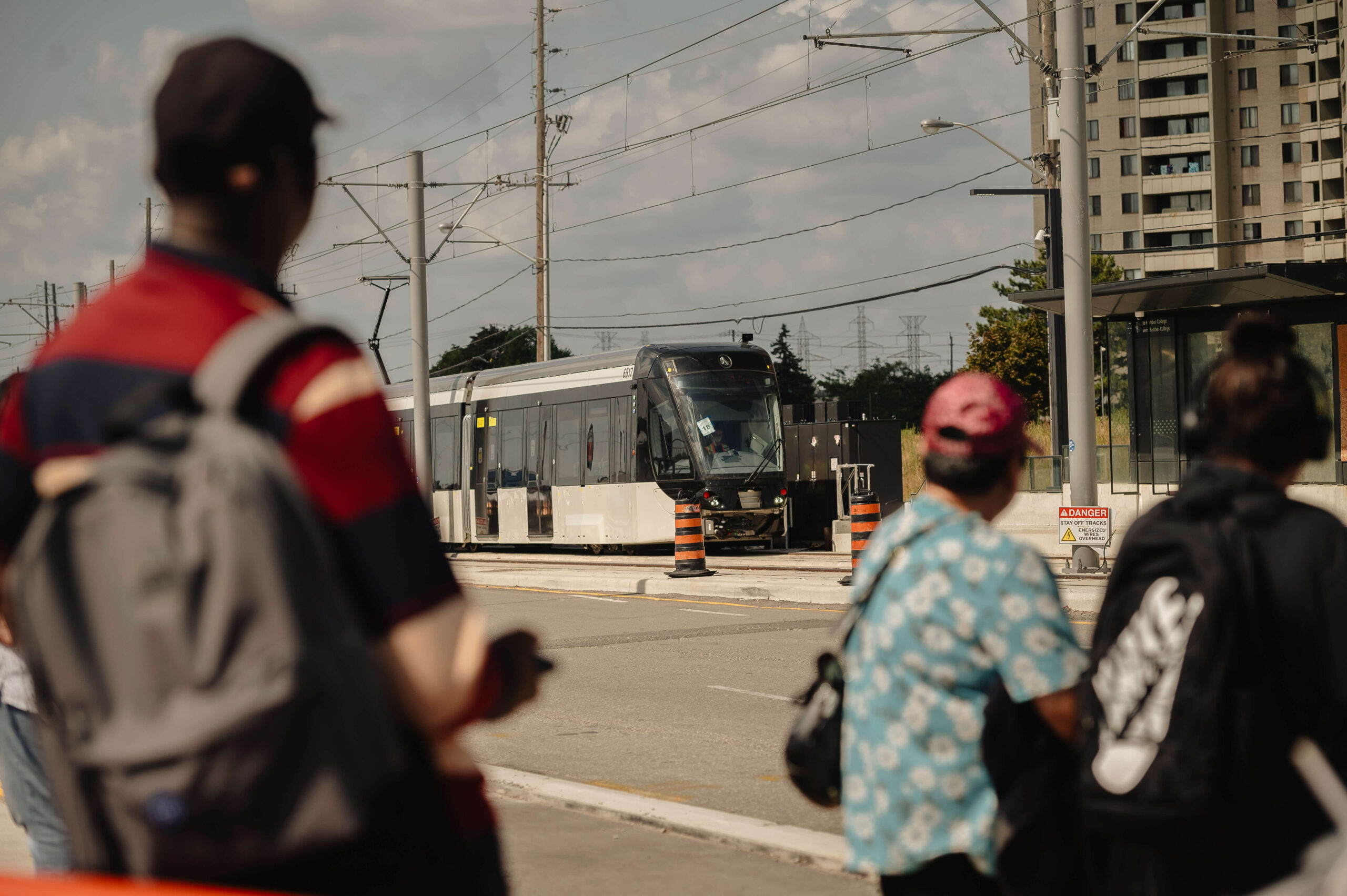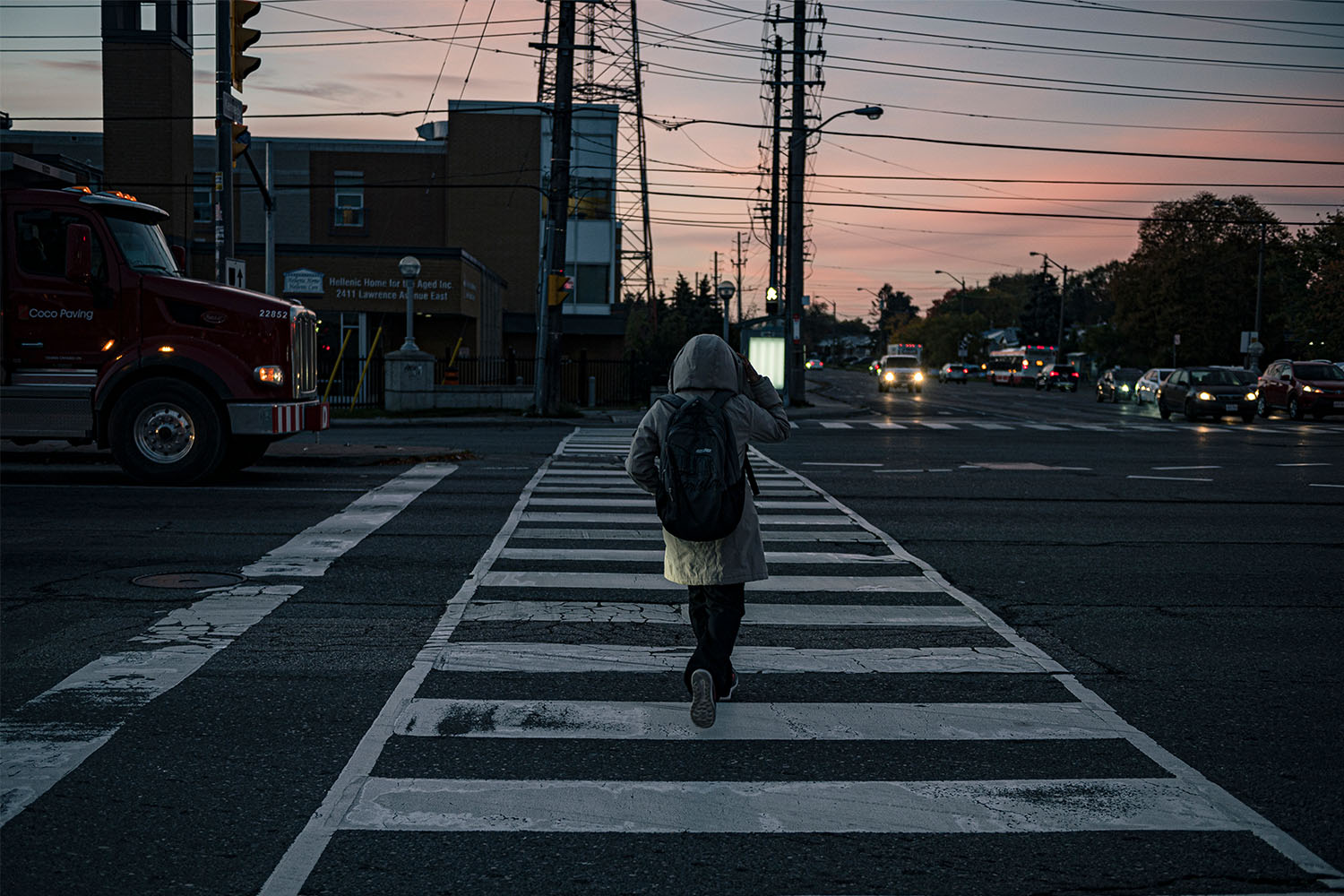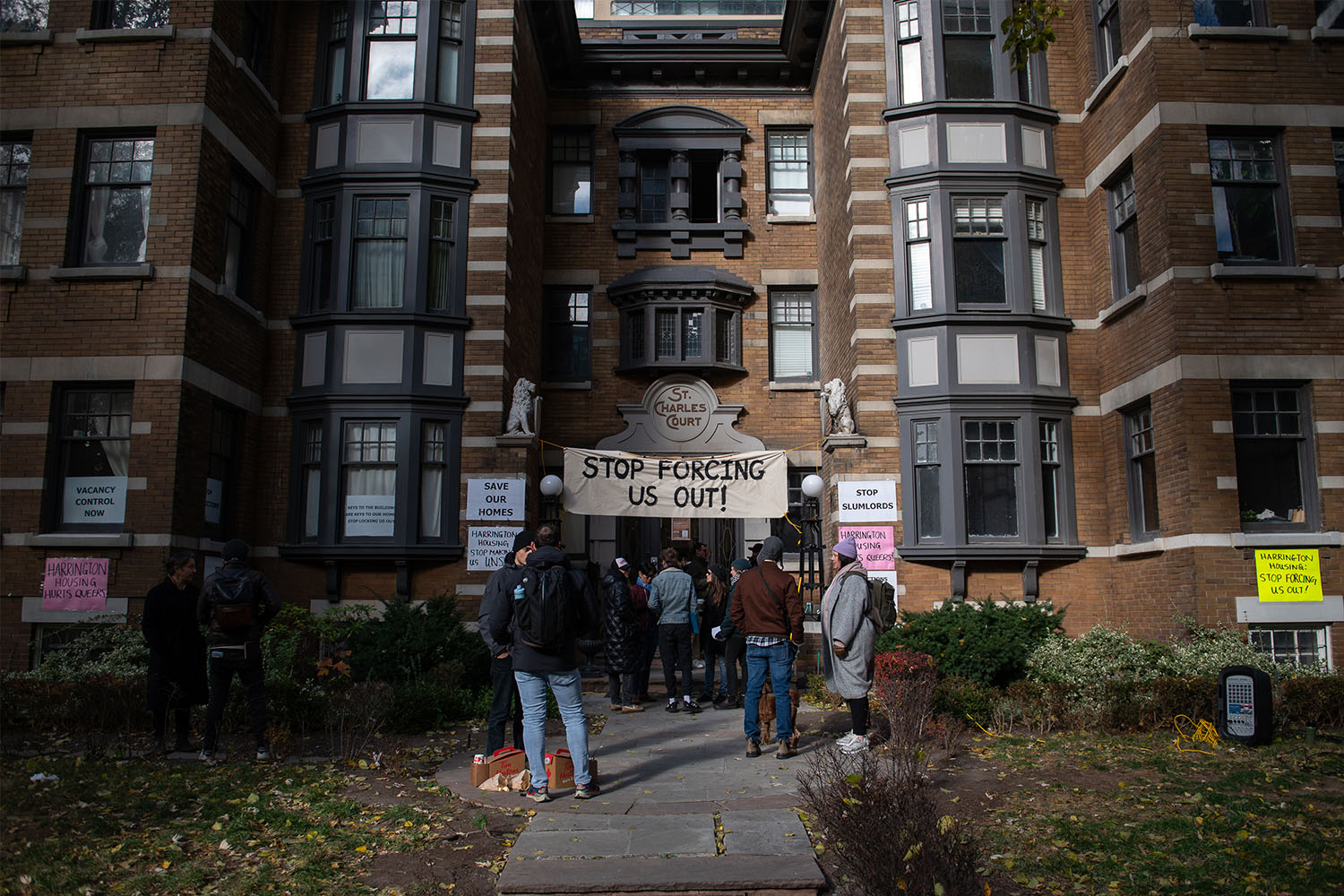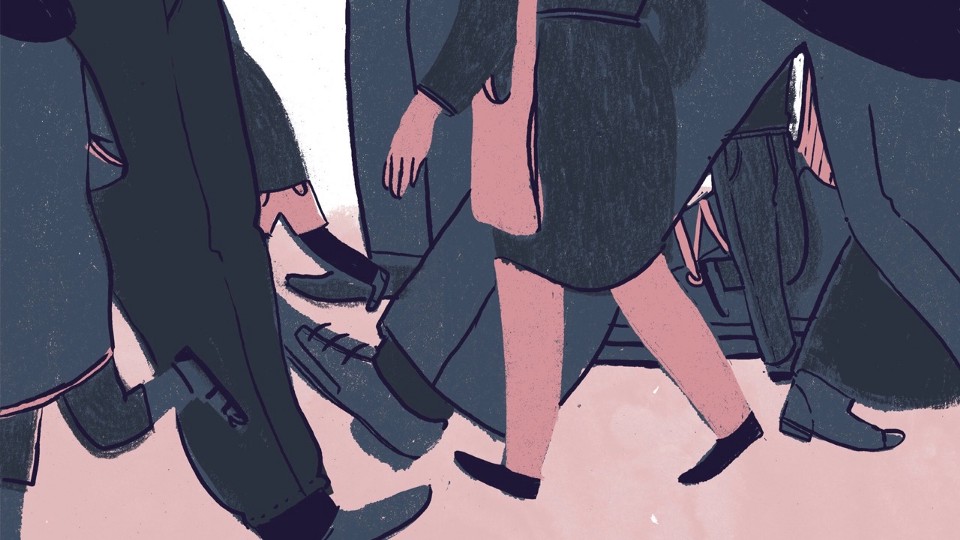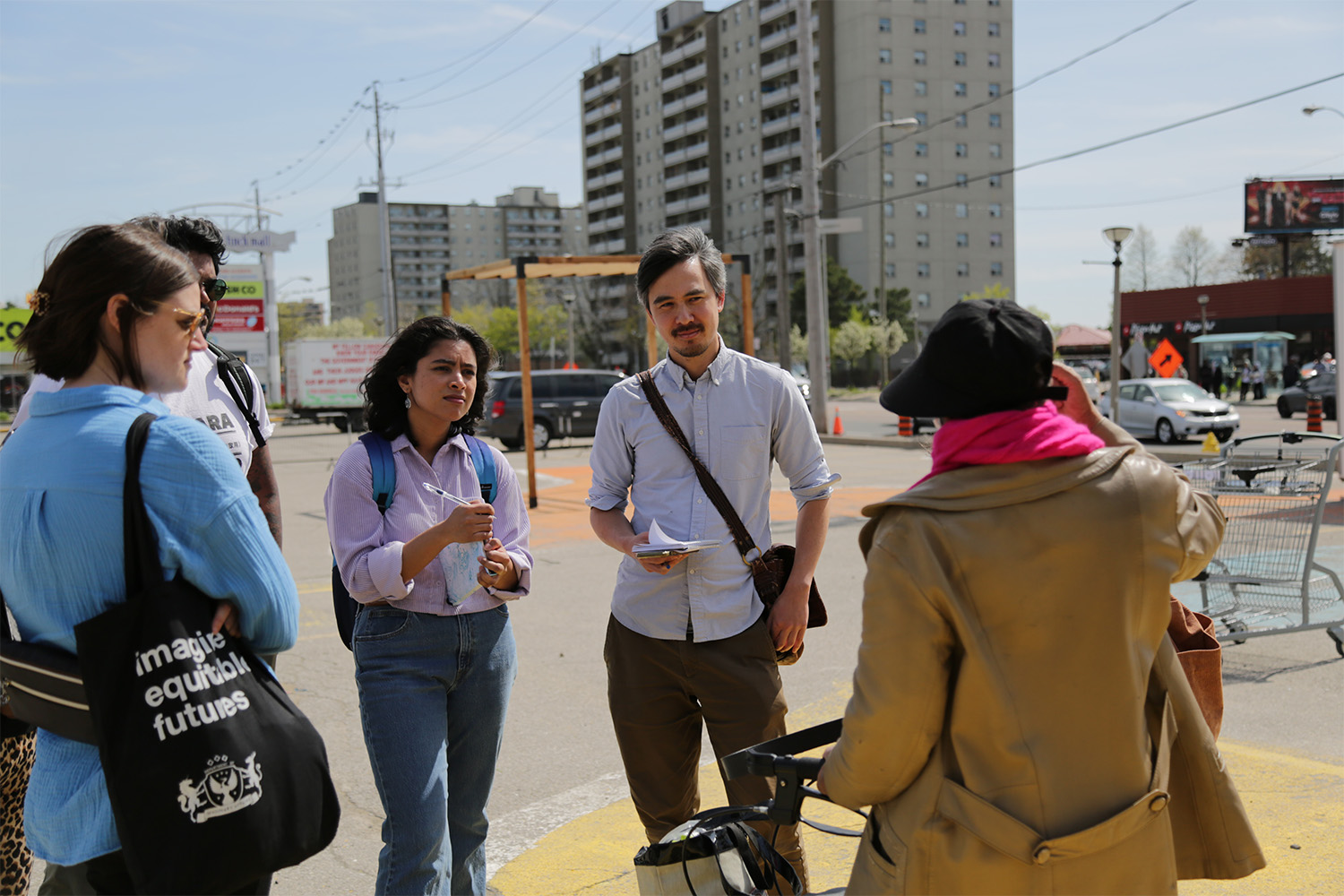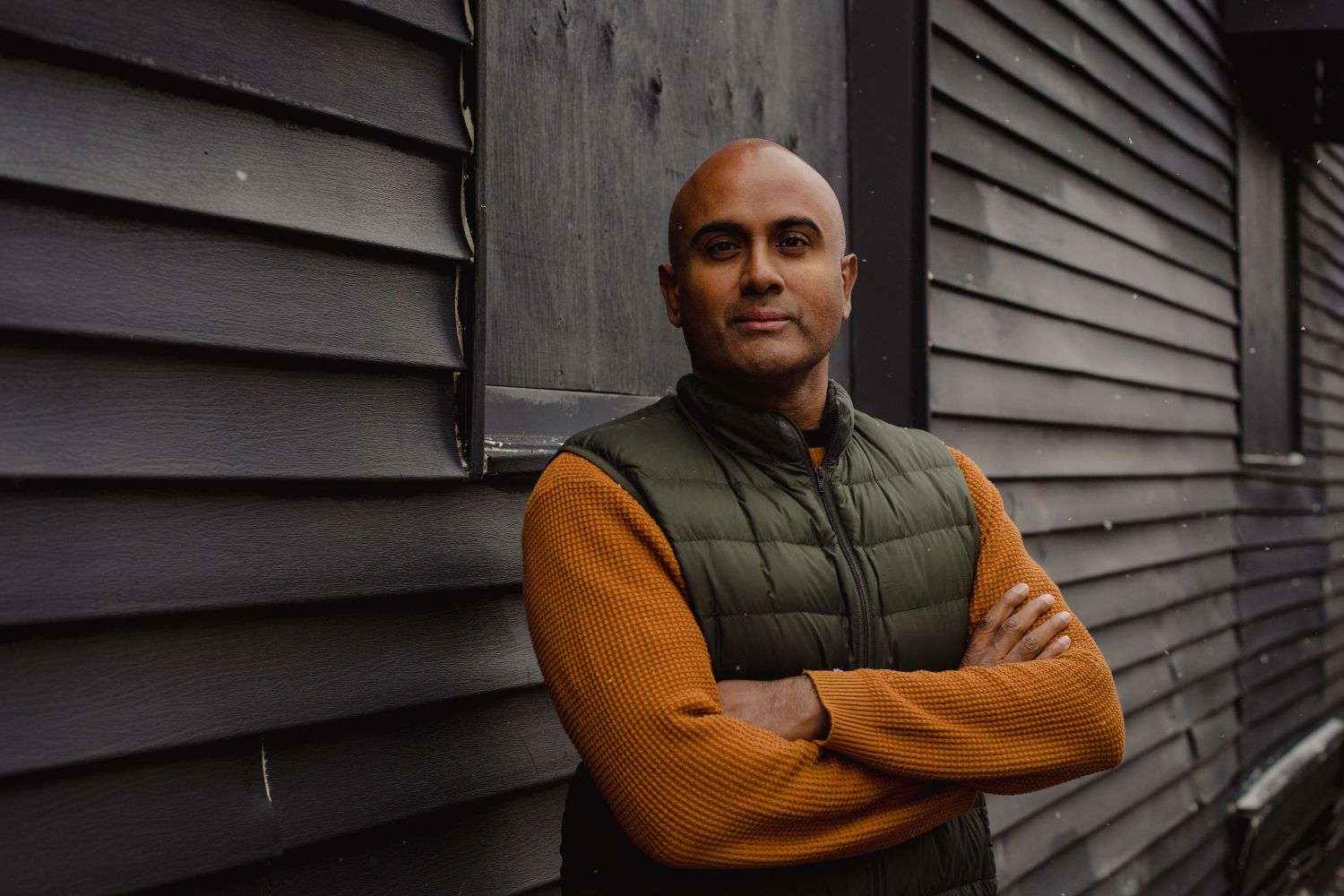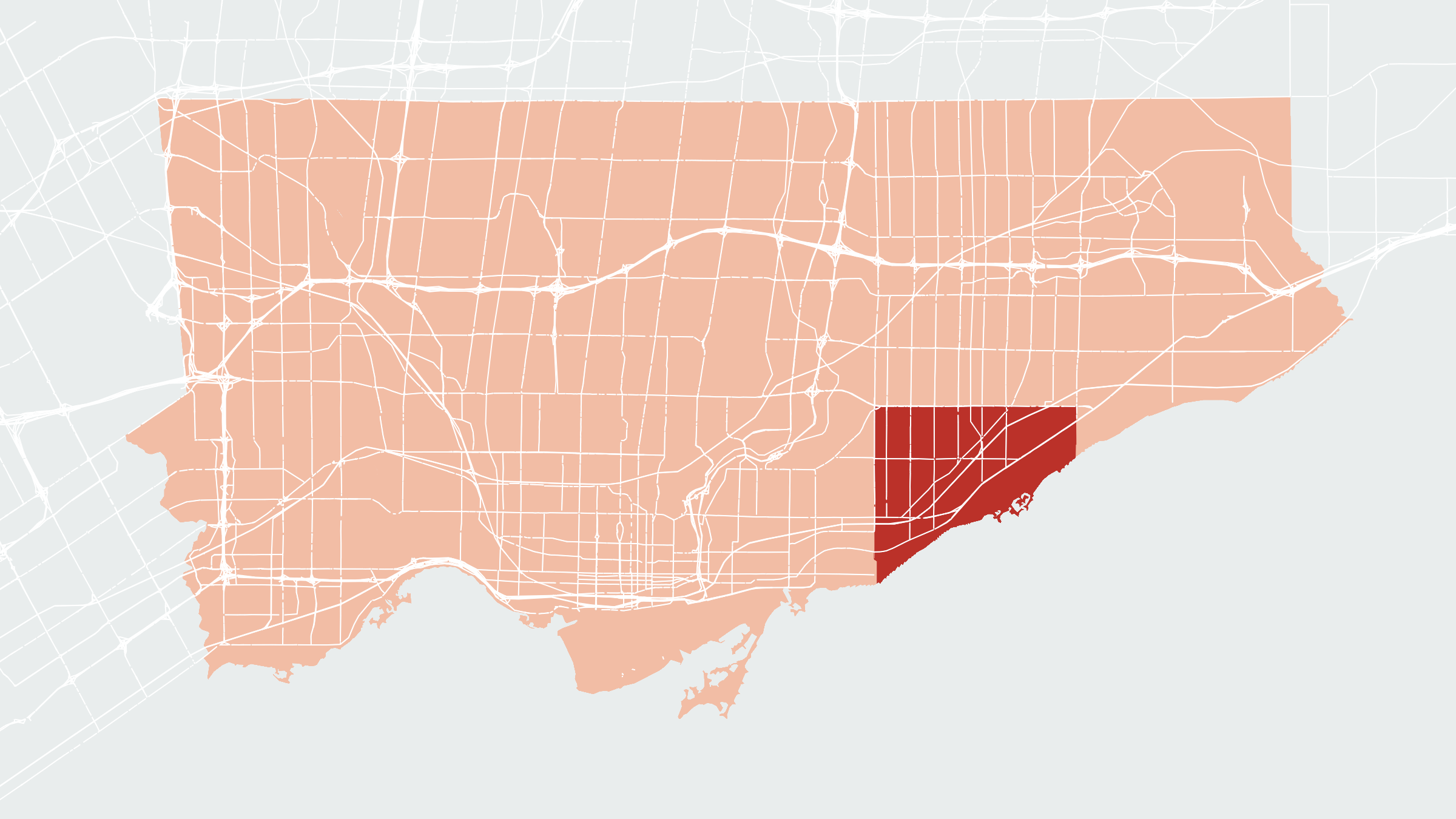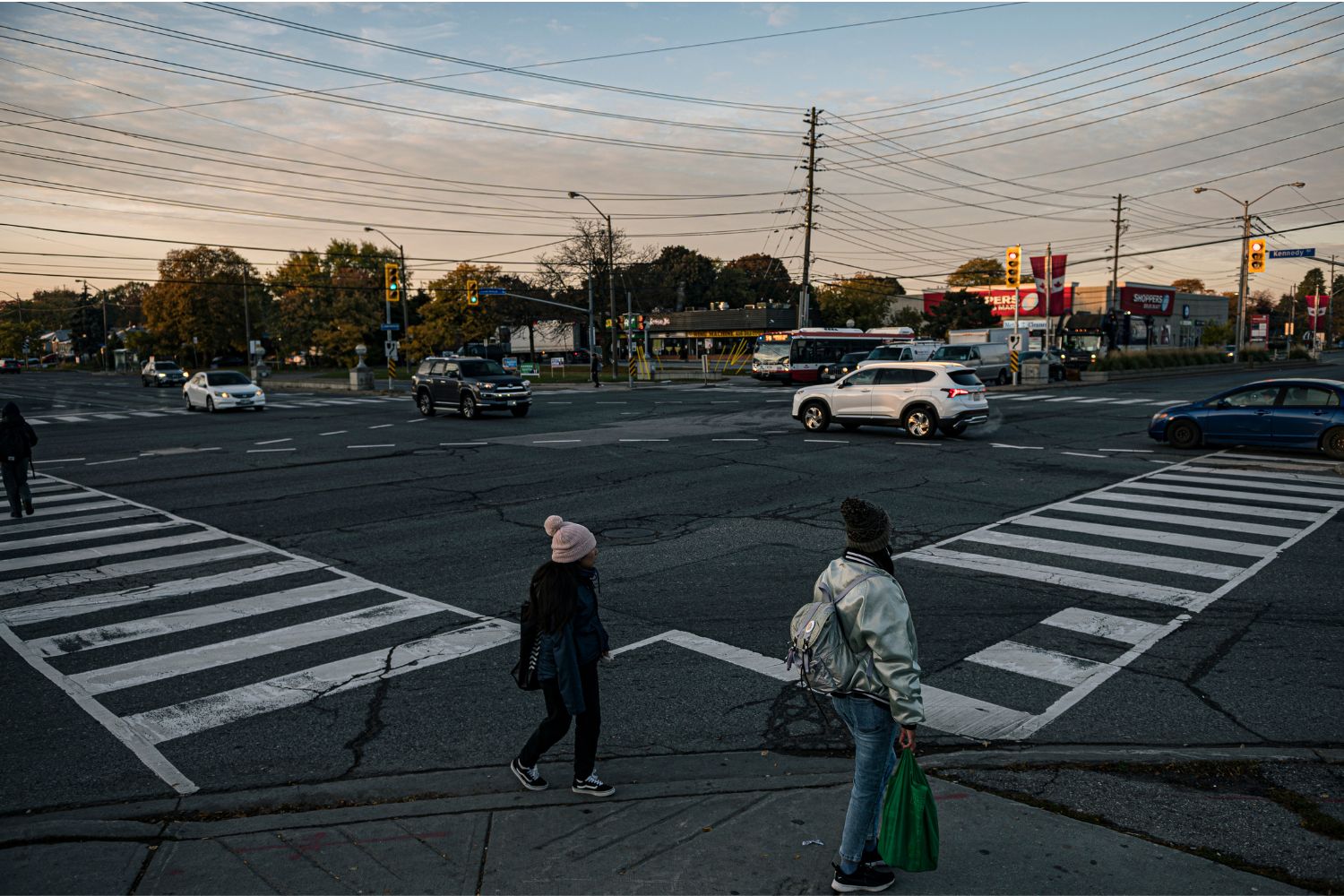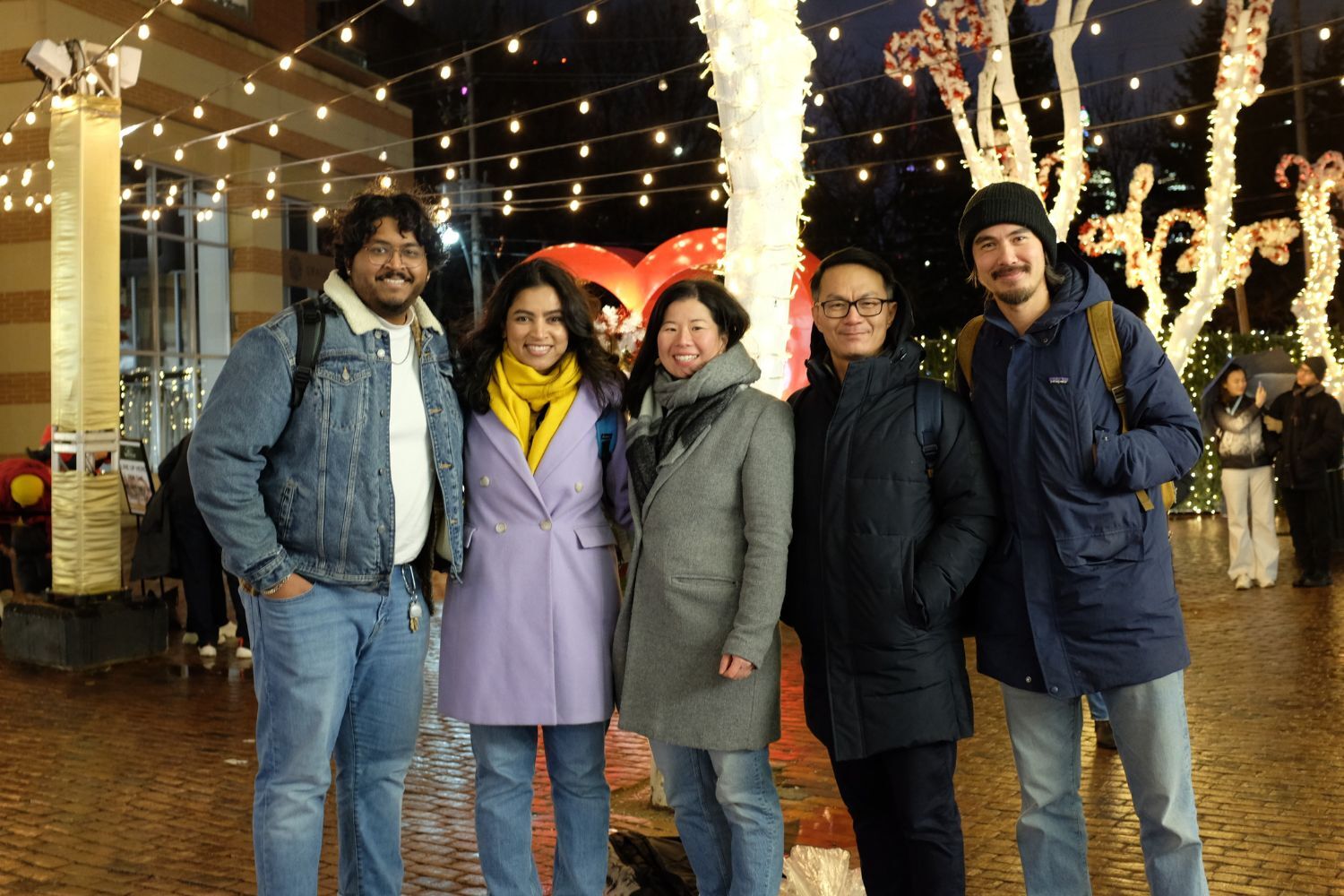
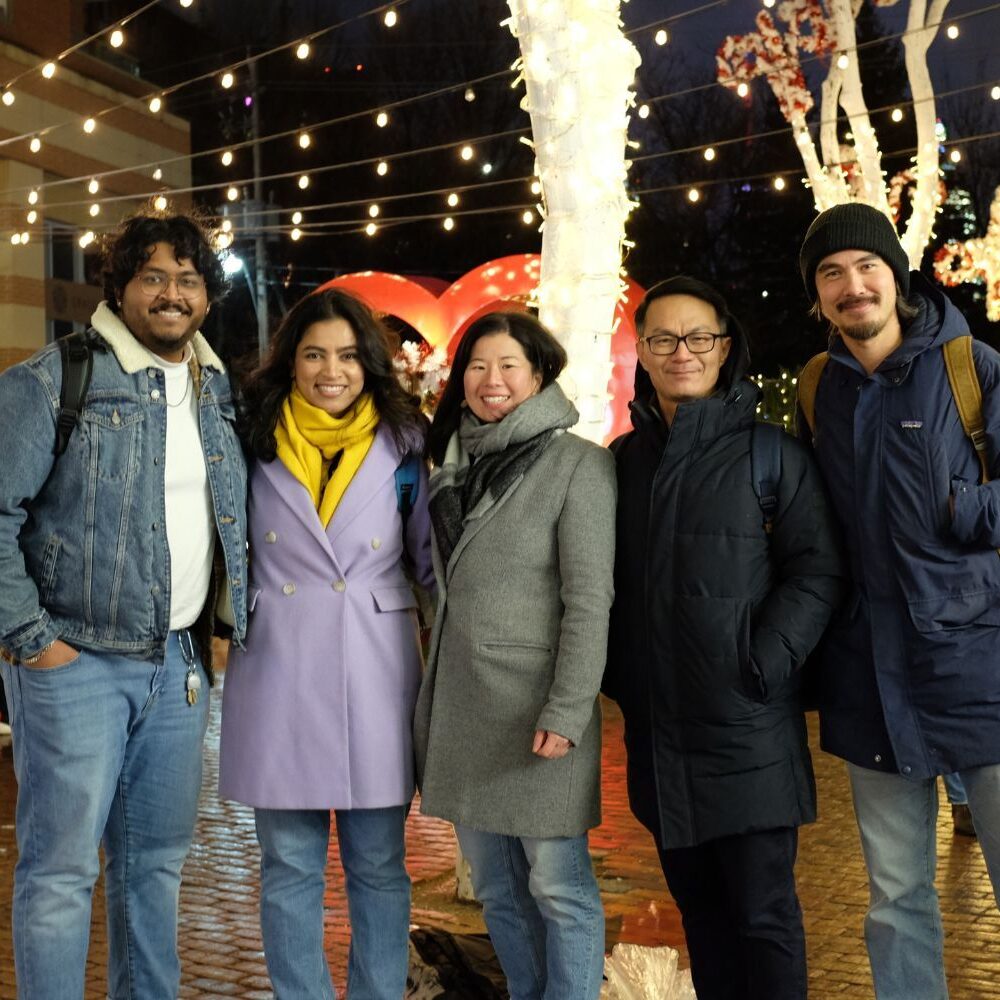
It’s late December and, as is tradition during this reflective time of year, we’re spending our evenings by the hearth, roasting chestnuts and scrolling through The Local archives. In 2023, we published more stories than ever, covered an unexpected mayoral election, devoted issues to everything from the rent crisis to the Finch West LRT to aging in Toronto. Let’s take to the Local Slack channel to discuss the year that was.
Nicholas Hune-Brown, Senior Editor: OK, we had our holiday party last night, ate too many tacos and churros in a weird restaurant in The Distillery, then asked a confused couple to take our official staff photo while we stood in the rain. But look, there we are—alive, smiling, freezing, but still standing after a tumultuous year. In a busy 2023, what stories stood out to you?
Craig Madho, Manager of Operations: For me, as a regular commuter and since our office is adjacent to the Ontario Line construction, it’d have to be “Canada’s Worst Obstacle Course.” When we went up to the city’s northwest to meet with residents, the construction they were experiencing as part of the Finch West LRT was unlike anything I had seen—chaos like that would never be acceptable downtown. So why was it OK in the Jane and Finch and Rexdale neighbourhoods?
NHB: Craig, you’re writing this the same week you got hit by a car while minding your business crossing the street (thankfully without serious injury). Is that why this story’s on your mind?
CM: Absolutely. Even before that incident I found myself peering around corners anywhere there’s heavy construction to make sure the coast was clear. It’s tough to be a pedestrian in the city. Chris Luna’s photography captures that feeling of chaos so perfectly, and really lends itself well to Richard Trapunski’s writing. I’m really proud of that issue as a whole for both its use of photography and for how the stories emerged from our community consultations.
Tai Huynh, Publisher and Editor-in-Chief: This is a hard one, with so many stellar stories this year. But if I had to choose, it was Nick’s sweeping, 5,000-word profile of Olivia Chow. So much had already been written about Chow over the years, which made it a tough assignment—so, of course, we gave it to Nick. And he didn’t disappoint. Yes, you get glimpses of Chow’s early years, her relationship with Jack Layton, her disastrous 2014 mayoral campaign, but where Nick chose to zero in was her last decade away from public life. That’s smart because, as Nick writes, it’s there that you find clues about the kinds of choices she’d make if she found herself back in power.
Inori Roy, Associate Editor: Speaking of Finch West, summer fellow Daysha Loppie’s essay on growing up on the 36 Finch bus added a beautiful personal touch to the issue. In the midst of these big, overarching problems of transit underdevelopment and construction woes, her first-hand experience relying on this bus route as a connection to the rest of the city, and now to her family, reminded us that there are deeply personal stakes to building out the city’s transit infrastructure. It’s always such a joy to see fellows find their voices as writers, and Daysha’s comes through so clearly in the piece.
NHB: Loved Daysha’s piece—getting to work with a bunch of smart fellows over the summer is always a highlight of the year. Speaking of Local alumni, former fellow Tahmeed Shafiq’s feature on the landlord tenant board, which found that tenants wait twice as long as landlords for justice at the board, was a huge standout. It was one of our most read stories of the year, sparked action at Queen’s Park, and inspired a different Local story (Adin Wagner’s fantastic analysis of wait times in small claims court). That was part of our Rent Issue, but this year it kind of felt like every story—whether about spiking food bank usage or who should be mayor—was a housing story.
TH: I think that’s why Kunal Chaudhary’s feature about a co-op housing complex in Rexdale stood out for me—it’s a solutions story at a time when everything about housing is so depressing.
CM: When I think about our housing coverage, my mind drifts to Ashley Okwuosa’s piece about “Renting while Black,” which was such a poignant piece about intersecting, systemic issues.
NHB: So the biggest 2023 win for us at The Local was obviously convincing Wency Leung to come join us here. Wency, you’ve been here a few months now, what are your biggest regrets?
Wency Leung, Staff Reporter: Ha, I’m still pinching myself that I get to be here! When I started in September, The Local was rolling out Simon Lewsen’s incredible piece, “The Crisis After the Crisis”—a story that underscored all the reasons I wanted to be here. I loved that it provided an update about this corner of Toronto that garnered plenty of media attention in the early days of the pandemic, but then dropped out of the spotlight.
IR: It’s been incredible to have Wency on the team, with her keen eye for sprawling policy stories with deeply human stakes at the centre of them. Her stark findings on childcare deserts in the city blew me away: she reported that the Ministry of Education is six years late on funding two dozen childcare centres in underserved parts of the city, leaving thousands of families in limbo.
NHB: OK, quick hits: any other stories stand out from the past year? I’ll just say that working with some of the best writers in Canada is a real treat, and Jason McBride and Navneet Alang both wrote profiles for our election issue that were among the best profiles written anywhere in 2023.
CM: I would say this was another stand-up year for our very own Inori Roy. Her piece in the Finch West Issue, “The Slow Fight for Rapid Transit on Finch West,” is a look at the impact of the Finch West LRT from the perspective of those living in Toronto’s northwest and measures Metrolinx’s level of community engagement, or lack thereof, against their other transit projects. It’s a very necessary audit of how this area of the city is treated compared to elsewhere, and what that says about how the project and community are valued.
IR: Loved writing that piece, getting to explore a part of the city I haven’t much visited before (pro tip for any reporter heading up: treat yourself to the incredible local food). Speaking of big projects I did this year, I have to give a big shout out to the Candidate Tracker team for pulling off what felt like a minor miracle with our Mayoral Tracker—102 candidates vying for the city’s top position in a surprise election is no joke, but their diligence made the job so much easier. Though, uh, as much as I like them, I hope for all our sakes that we don’t need to get the gang back together next year. Let’s save the next election for 2026, shall we?
TH: Not any story in particular, but something that also stood out and made all of The Local’s stories better this year were the incredible illustrations and photography. I’d like to give a special shoutout to Chris Luna, whose photojournalism took us into distant neighbourhoods and gave us magnificent views of the city from above and within.
NHB: 2023 was also the year the entire Canadian news distribution system seemed to fall apart. Tai, did you have a fun year on the publishing side?
TH: Every year feels like an existential year in Canadian journalism, but 2023 was definitely over the top. There were huge layoffs in the industry and major threats from Big Tech in retaliation to the Online News Act. It feels like no publication escaped 2023 unscathed. The Local, along with the rest of Canadian journalism, was banned from Facebook and Instagram, which at one time were responsible for nearly 20 percent of our traffic. There was one positive, though: it forced us to be creative. We found new ways to reach audiences. We printed election handbooks and partnered with the Toronto Public Library to put them into branches all across the city; we built new promo features on our website and got a ton of new subscribers. I feel lucky to be able to do what we do here at The Local in the midst of all the upheaval thanks to the continued support from generous supporters and readers. I think it speaks to the resilience of our non-profit approach to community journalism.

